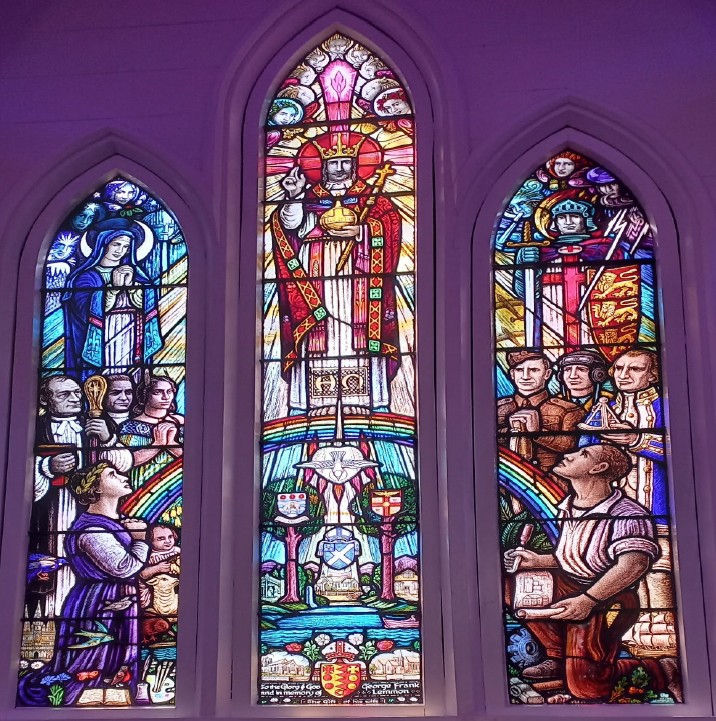Reflection by The Rev'd Dr Deborah Broome
- joannestevenson
- Oct 8, 2025
- 3 min read

Seek the welfare of the city
These are the words of the letter that the prophet Jeremiah sent from Jerusalem to the remaining elders among the exiles, and to the priests, the prophets, and all the people, whom Nebuchadnezzar had taken into exile from Jerusalem to Babylon. Thus says the Lord of hosts, the God of Israel, to all the exiles whom I have sent into exile from Jerusalem to Babylon: Build houses and live in them; plant gardens and eat what they produce. Take wives and have sons and daughters; take wives for your sons, and give your daughters in marriage, that they may bear sons and daughters; multiply there, and do not decrease. But seek the welfare of the city where I have sent you into exile, and pray to the Lord on its behalf, for in its welfare you will find your welfare. (Jeremiah 29:1,4-7)
It’s shortly after 597BCE and the people of Judah are in exile in Babylon. Jeremiah writes to encourage them not to resist their situation, but to live faithfully within it: it’s going to last for a long time. This was what the exiles needed to hear – but it sure wasn’t what they wanted to hear. They wanted a comforting message that their exile was going to end, and that in a few months they’d be on their way home again. But no: no living in denial, no moaning about the good old days and clinging to a sense of grievance. They must stop hoping for things to go back to how they used to be, accept that they were where they were, and get on with the business of living. They were to put down roots in Babylon: homes, gardens, marriage and family life.
They were even to pray for the foreign empire – for those who had ill-treated them and torn them away from their homeland. They’re called to seek the welfare of the city, not just for themselves but for their captors. This is where God has put them, and the unexpectedly positive attitude they were told to have towards Babylon gives this vulnerable small community a missional responsibility: they have work to do here, seeking shalom – peace, wholeness, and justice – for everyone. This is a radical call to hope and long-term commitment. They are called to live faithfully even in hard places, even in exile.
It’s easy, thinking back to what life used to be, when many more people than today went to church, cared for their neighbours, and lived by commonly accepted standards of behaviour (or at least that’s how it can seem, looking back), to feel like a stranger in your own community. Being Church can sometimes feel like being in exile. It can be tempting to moan about how secular this country has become, and to want to retreat into a sort of holy huddle. But that’s where Jeremiah’s words can help us work out how to live. “Build houses and live in them, plant gardens and eat what they produce”: Christians remaining in the surrounding culture and engaging with it. “Seek the welfare of the city where I have sent you into exile, and pray to the LORD on its behalf”: this says something about how we should participate in the life of the society around us. It’s a call to stop resenting how things are, and instead work out ways to add value to the communities we live in. It’s fascinating that this reading comes up at the time of the local body elections. How do we live faithfully in a world that often feels like exile? How do we seek the good of our communities, even if they don’t reflect our values?



Comments